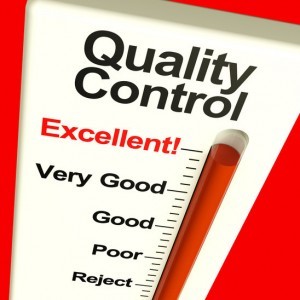 There are indeed several certifications that interpreters may have. All of them are in the area of what is called “community interpreting”: language interpretation for courts, hospitals, social services.
There are indeed several certifications that interpreters may have. All of them are in the area of what is called “community interpreting”: language interpretation for courts, hospitals, social services.
Each state in the United States one way or another has a court interpreter certification system. In order to be called a “certified court interpreter” you have to pass a written and an oral test for knowledge of court terminology and consecutive and simultaneous interpretation skills required in the courtroom setting.
After that you may be called a “certified court interpreter” in your state.This is done at the state level.
However, for several languages, there is also a federal court interpreter certification program.
Certified court interpreters are required in some situations and strongly preferred in others. All those situations, however, are court and not “conference interpretation.”
Medical interpreters also enjoy their own certification system that allows them hospital and OR privileges. Considering how critical the work of an interpreter is, and that human life may be at stake, it is not surprising such a certification is required to be able to practice medical interpretation during patient visits, surgeries etc.
Social services may also have their own “certification”, for example, the Washington State Department of Social and Health Services has its own Language Testing and Certification Program.
So, does it add any value if you need a “conference interpreter”?
Not really. Of course, it is a step up compared to someone, who has no certification at all, however, “conference interpretation” is a completely different profession.
Conference interpreters occasionally perform court or medical interpretation, however, the majority of them are highly trained freelancers, who work at conferences, travel a lot internationally and interpret on a much greater variety of topics both consecutively and simultaneously.
There is no separate official certification for conference simultaneous and consecutive interpretation in the United States.
The Office of Language Services of the Department of State has a roster of interpreters, however, it is not certification either, and cannot be advertised as such.
Quality of conference interpreters should be determined based not on whether they are “certified” or not, but based on a number of other parameters, such as:
– a professional degree in conference interpretation;
– a membership in an association specifically set up for conference interpreters with strict admission criteria, e.g. AIIC – International Association of Conference Interpreters;
– is the interpreter exclusively or primarily practicing conference interpretation.
Some companies may also call themselves “ISO 9001:2008 certified”, however, it is not interpreter certification per se, but requirements for a quality management system within an organization.
Clients should beware of attempts to sell them “certified” conference interpreters, because nowadays this word may be used as a marketing trick to create an illusion of higher quality.

